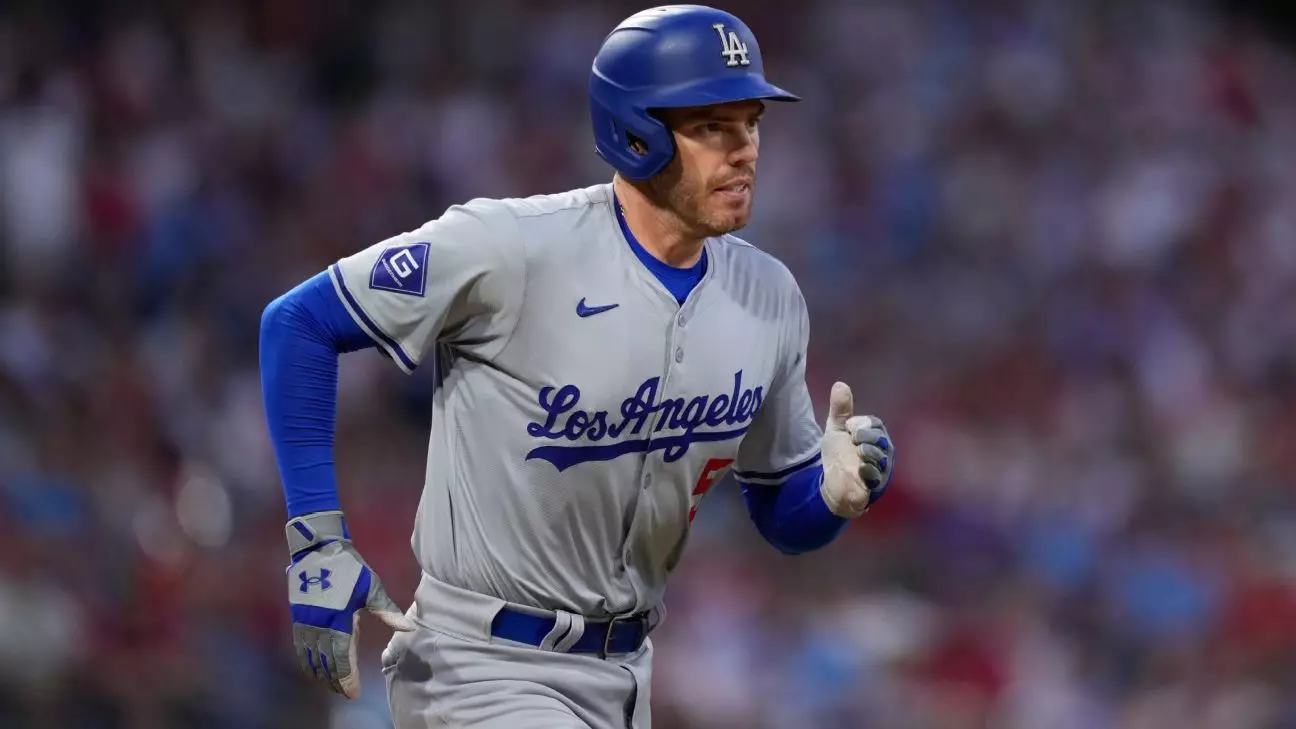In the high-stakes environment of Major League Baseball’s postseason, injuries can significantly alter a team’s dynamics. This is particularly relevant for the Los Angeles Dodgers as they navigate the National League Championship Series (NLCS) without their All-Star first baseman, Freddie Freeman. As Freeman nurses a painful right ankle sprain that dates back to September 26, the Dodgers are faced with the challenge of compensating for his absence. Freeman’s ongoing treatment regimen reflects both the physical and mental toll that injuries can take on athletes, particularly during pivotal playoff games.
Freeman, known for his exceptional power and ability to influence games, has only been able to record seven hits—all singles—over 27 at-bats in the postseason. This statistic starkly contrasts with the expectations placed on a player of his caliber, especially considering his history as an MVP and eight-time All-Star. The decision to rest Freeman in Game 4 against the New York Mets—following a dominant 8-0 win in Game 3—highlights the Dodgers’ cautious approach to managing player health while simultaneously striving for victory.
In light of Freeman’s injury, the Dodgers made a significant adjustment to their batting order. Teoscar Hernandez is slated to fill in the crucial No. 3 spot typically held by Freeman. Meanwhile, Kiké Hernández and Max Muncy are being repositioned within the infield to maintain both defensive integrity and offensive effectiveness. These strategic adjustments not only represent a shift in personnel but also underscore the coaching staff’s proactive approach to maintaining competitive advantage whilst adapting to adversity.
Despite being sidelined, Freeman’s influence remains palpable among the team. His commitment to playing, even while clearly in pain, serves as an emotional and motivational catalyst for his teammates. Veteran catcher Will Smith acknowledged the respect and admiration Freeman commands within the locker room, emphasizing how his willingness to take the field under duress inspires others. This demonstrates the intangible value of leadership in sports, where the psychological aspects can often be as crucial as tactical execution.
As the playoffs progress, the future of both Freeman and the Dodgers will hinge on a delicate balance between managing injuries and pursuing championship aspirations. Freeman’s daily treatments and the potential for additional rest days indicate that his recovery will be a continual focus. The Dodgers lead the series 2-1, a testament to their depth and resilience—but they will need Freeman at his best if they hope to secure their spot in the World Series. In the intense atmosphere of playoff baseball, the interplay between injury management and strategic gameplay could very well define the Dodgers’ postseason journey.

